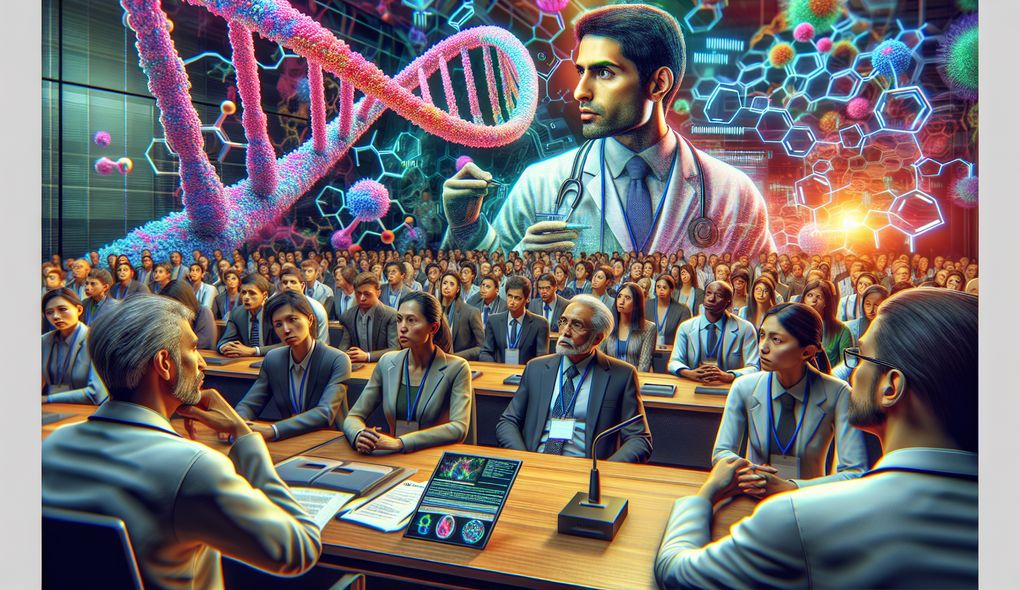How do you review and interpret patient genetic data to make informed clinical decisions?
JUNIOR LEVEL

Sample answer to the question:
To review and interpret patient genetic data, I start by collecting the data from the laboratory information system and relevant software. I carefully analyze the data, looking for specific mutations and variations that might affect the patient's health. I also consider the patient's medical history and relevant research to make informed clinical decisions. Communication and collaboration with the multidisciplinary team are crucial in this process. I provide recommendations for personalized treatment plans based on the molecular profiling of the patient. Additionally, I stay updated with the latest research in molecular oncology to ensure the best possible outcomes for patients.
Here is a more solid answer:
When reviewing and interpreting patient genetic data, I first obtain the data from the laboratory information system and relevant software. I have a strong ability to analyze and interpret complex genetic data by identifying specific mutations and variants that may have implications for the patient's condition. I apply my problem-solving and critical thinking skills to integrate the genetic data with the patient's medical history and relevant research to make informed clinical decisions. Effective communication and collaboration with the multidisciplinary team are key in this process, as I discuss and exchange insights and recommendations with other experts. To ensure accuracy and precision, I pay great attention to detail and organize the data in a systematic manner. I am proficient in using laboratory information systems and relevant software to handle and analyze genetic data effectively. Moreover, I am committed to ongoing education and professional development to stay updated with advancements in molecular oncology and enhance my skills.
Why is this a more solid answer?
The solid answer provides more specific details about the candidate's skills and experience in each evaluation area, demonstrating their ability to analyze and interpret genetic data, problem-solving and critical thinking skills, effective communication and collaboration, organizational skills, proficiency with relevant software, and commitment to ongoing education and professional development. However, it can still be further improved by providing specific examples or achievements to support the claims.
An example of a exceptional answer:
Reviewing and interpreting patient genetic data is a meticulous process that I approach with precision and thoroughness. I start by meticulously collecting the data from the laboratory information system and relevant software, ensuring that every data point is accurate and complete. With my deep understanding of molecular biology, genetics, and oncology principles, I apply advanced analytical techniques to unravel complex genetic data. I have encountered challenging cases where I had to identify rare mutations or structural variations that could have been missed by automated tools. By combining my expertise in problem-solving and critical thinking, I craft treatment strategies that leverage the patient's unique molecular profile. I effectively communicate my findings and recommendations to the multidisciplinary team, promoting collaborative decision-making. My strong organizational skills enable me to handle large volumes of data efficiently, ensuring that no important information is overlooked. I am proficient in using laboratory information systems and relevant software, and I continuously seek opportunities for professional development and educational growth. For instance, I attended conferences where I presented my original molecular oncology research, contributing to the scientific community and expanding my knowledge.
Why is this an exceptional answer?
The exceptional answer goes above and beyond by highlighting the candidate's meticulousness in collecting and verifying data, their expertise in analyzing complex genetic data, their ability to handle challenging cases, their advanced problem-solving skills, and their effective communication and collaboration with the multidisciplinary team. The answer also emphasizes the candidate's strong organizational skills, proficiency with relevant software, and dedication to ongoing professional development. Furthermore, the candidate provides a specific example of attending conferences and presenting original research, demonstrating their commitment to advancing molecular oncology.
How to prepare for this question:
- Familiarize yourself with laboratory information systems and relevant software commonly used in molecular oncology practices.
- Stay updated with the latest research and advancements in molecular biology, genetics, and oncology.
- Practice analyzing and interpreting complex genetic data using case studies or simulated scenarios.
- Enhance your problem-solving and critical thinking skills through exercises or puzzles.
- Reflect on your past experiences where you reviewed and interpreted genetic data, and think about specific examples or achievements that demonstrate your abilities in each evaluation area.
- Prepare to discuss your communication and teamwork abilities, providing examples of successful collaborations with multidisciplinary teams.
What are interviewers evaluating with this question?
- Ability to analyze and interpret complex genetic data
- Strong problem-solving and critical thinking skills
- Effective communication and teamwork abilities
- Organizational skills and attention to detail
- Proficiency with laboratory information systems and relevant software
- Adaptability and a strong commitment to ongoing education and professional development

